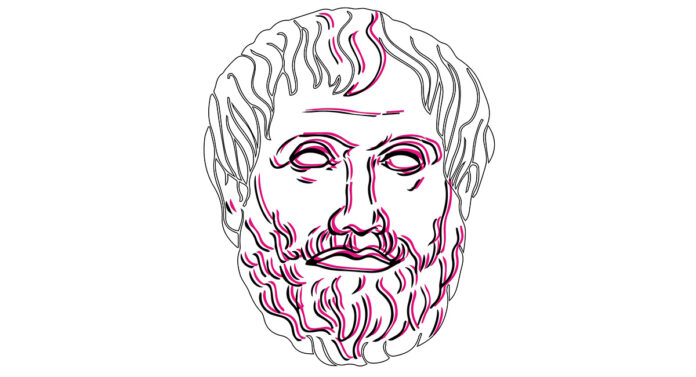Ricordo che il potere è comunque comando e che ci sono varie forme e modi del comando e che è così che si caratterizzano le organizzazioni sociali: dimmi chi e come comanda e ti dirò che società sei.
Non solo, si ricordi che senza comando non c’è società. Storia e antropologia culturale ci permettono di individuare modi, dinamiche e tassonomie. Che dire su questo nostro tempo?
Tra i Paesi dominanti possiamo riconoscere (in quello che chiamiamo Occidente, e che poco tempo fa indicavamo come l’insieme dei Paesi avanzati o sviluppati) modalità dette democratiche, e nei Paesi contendenti e altrettanto dominanti (e prevalentemente orientali, come Cina, e solo in parte Russia) modalità che ci appaiono totalitarie.
Sospendiamo per un po’ l’urgenza di ridefinire politicamente sia democrazia che totalitarismo e le loro dinamiche, forme, contraddizioni, strategie, organizzazioni e potenzialità da una parte e dall’altra (con tutte le loro varianti, intrecci, ambiguità), per provare e a domandarci come si forma il comando, il governo e la stessa soggettività politica.
Questo non perché io voglia rielaborare una qualche nuova (o diversa) storiografia o teoria del potere, ma perché queste mie spigolature (o dialogo con voi) nascono perché sono convinto che è cambiato il modo di produzione da quello industriale a quello digitale e che questo porta a cambiamenti radicali su tutto, in particolare sulla politica.
Bene! Detto che i vecchi poteri resistono – e come! – la domanda è come configurare, capire, accompagnare, legittimare una nuova forma di comando, potere, società. Ma ci chiediamo: di quale potere abbiamo bisogno per l’età del digitale?
Ciò che resiste al cambiamento si aggrappa a ciò che è consolidato, magari vestendolo di novità o di retoriche che cercano l’inclusione ideologicamente più ampia possibile (il cosiddetto Occidente), oppure riafferma il dominio per il dominio senza cercare mediazioni o retoriche di sorta (il cosiddetto Oriente).
Qual’ è il problema dalle nostre parti, tra noi occidentali? Ci viene spontaneo dire che il comando andrebbe dato a chi è competente e quindi sa ben prevedere il futuro, ma quello che da tempo sta accadendo è che viene concesso (con varie formule e trappole legislative, costituzioni) a chi se lo prende il potere senza sapere non solo di una qualche sua competenza ma nemmeno se ci sia un perché e un come.
Dimostrazione drammatica di crisi (di assoluta inconsistenza e illegittimità) di sistema, ma anche di incapacità (o rifiuto) di capire che nell’attuazione del digitale si sta radicalmente modificando non solo nei modi, nelle tecniche e nelle forme di legittimazione, proprio il potere che sta al centro di qualsiasi forma di società non solo umana. Come? Con che pericoli o con che prospettive? Proverò ad indicare scenari nelle prossime spigolatore
I remember that power is still leadership and that there are various forms and ways of leadership. This is how social organizations are characterized: tell me who and how they lead, and I will tell you what kind of society you are.
Not only that. Remember that without leadership there is no society. Cultural history and anthropology allow us to identify modes, dynamics, and taxonomies. What about our time?
Among the dominant countries we can recognize (in what we call the West, and which a short time ago we referred to as the set of advanced or developed countries) the so-called democratic modalities. On the contrary, in the contending and equally dominant countries (and mainly Eastern countries, such as China, and only partly Russia) we recognize modalities that appear totalitarian to us.
Let us suspend for a while the urge to politically redefine both democracy and totalitarianism and their dynamics, forms, contradictions, strategies, organizations, and potentialities on both sides (with all their variants, entanglements, ambiguities).
Instead, we should ask ourselves how leadership, government, and political subjectivity are formed. This is not because I want to rework some new (or different) historiography or theory of power, but because these gleanings of mine (or dialogue with you) arise from the belief that the way of production has changed from industrial to digital has led to radical changes on everything, especially on politics.
Good! Having said that the old powers resist, the question is how to configure, understand, accompany, legitimize a new form of leadership, power, society. In this aim we should wonder: what kind of power we would need for the digital age?
What resists change clings to what is consolidated, perhaps dressing it with novelty or rhetoric, seeking the widest ideologically inclusion (the so-called West), or reaffirming domination for domination without seeking mediation of any kind (the so-called East).
What is the problem among us Westerners? It comes naturally to us to say that the leadership should be given to those who are competent and therefore know how to foresee the future well. However, what has been happening for some time is that leadership is granted (with various formulas and legislative traps, constitutions) to those who take power without knowing if they have some sort of skills.
It is a dramatic demonstration of the crisis (of absolute inconsistency and illegitimacy) of the system, but also of the inability (or refusal) to understand that in the implementation of the digital world, the power, which is at the heart of any form of society, is being radically changed. How? With what dangers or with what prospects? I will try to indicate scenarios in the next gleaner








